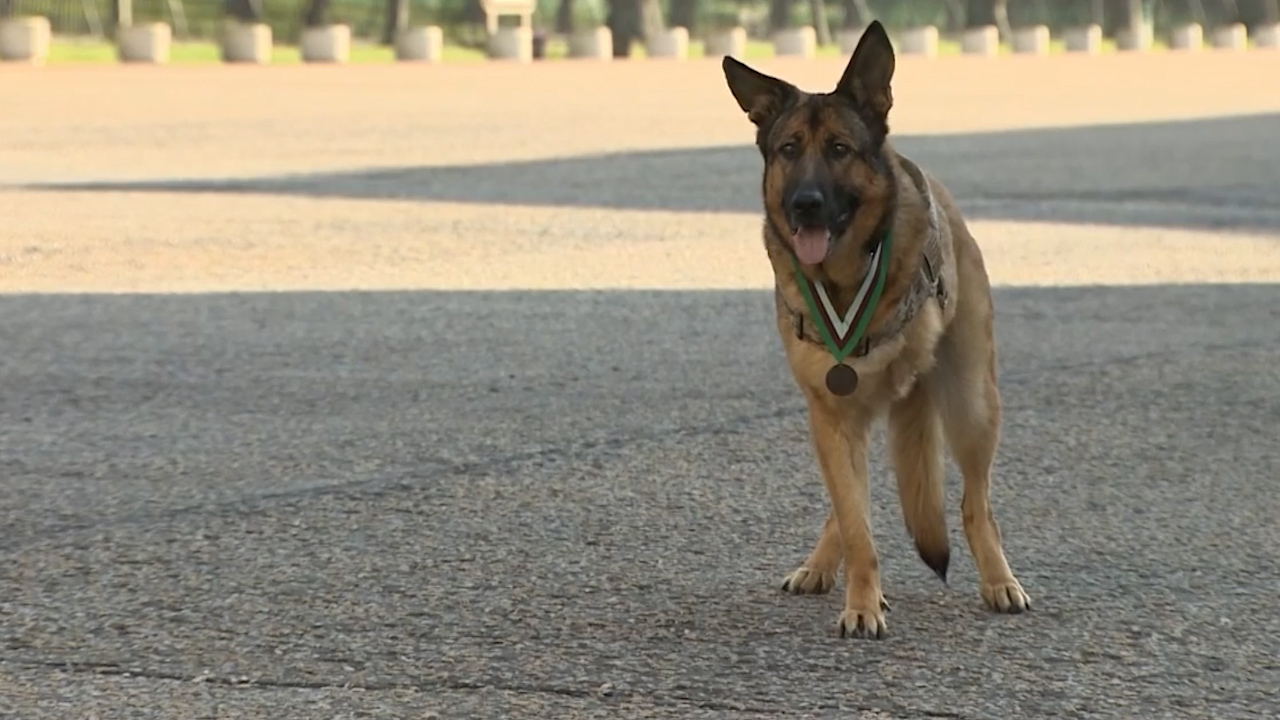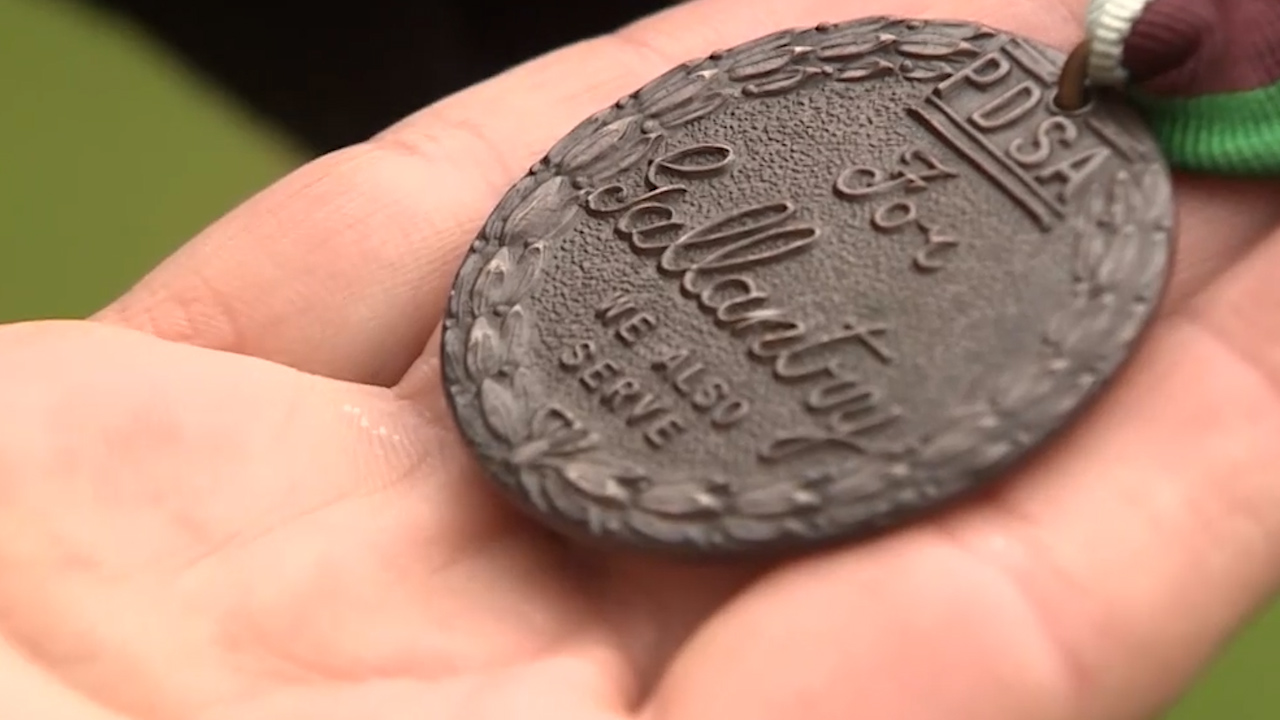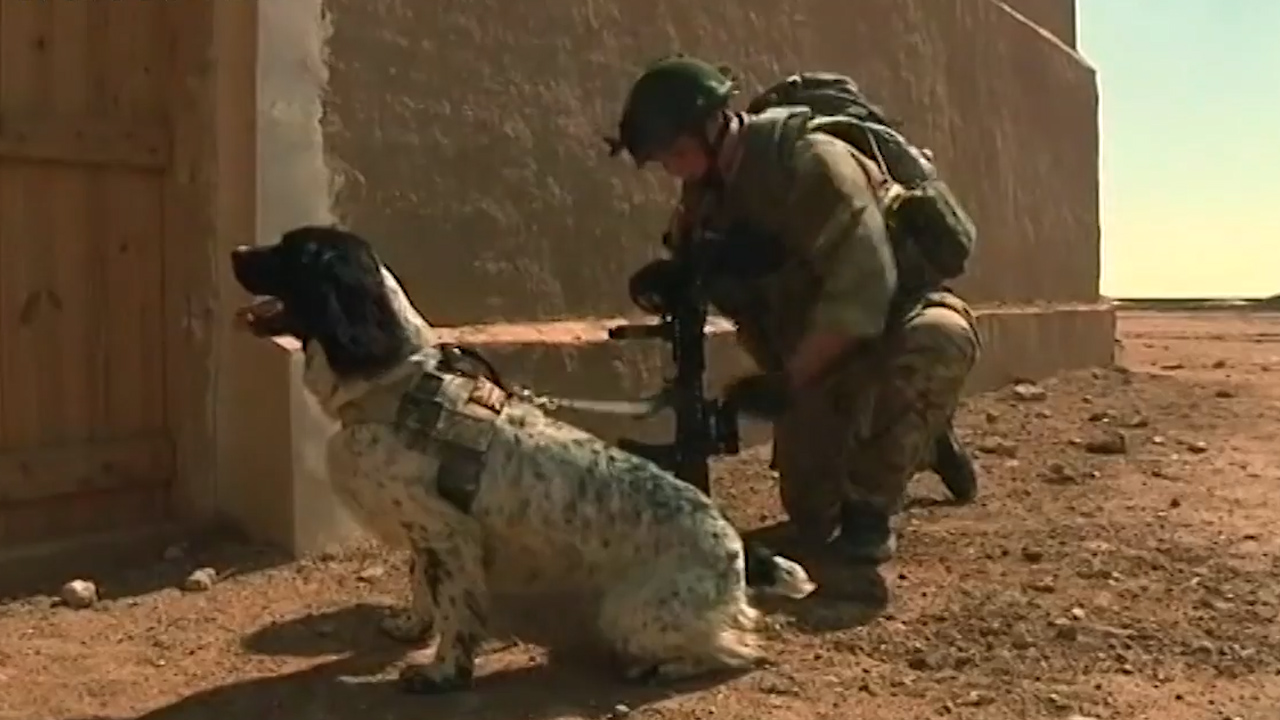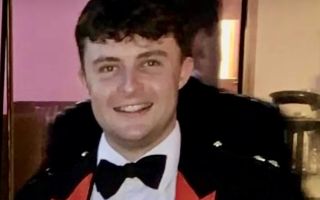Dickin Medal: 80 years of honouring the military's heroic frontline animals
The Dickin Medal is the animal equivalent of the Victoria Cross and is the highest form of honour an animal can receive for heroism in a military conflict.
The medal, which was named after PDSA founder Maria Dickin, is now in its 80th year, having been established in 1943 to recognise the gallantry displayed by animals during the Second World War.
Since its inception the Dickin Medal has gone on to become a symbol of valour, awarded to animals that have supported the Armed Forces across the globe.

Who was Maria Dickin?
Maria Dickin founded the People's Dispensary for Sick Animals (PDSA), an organisation dedicated to providing veterinary care for the pets of people in need.
She was born in London in 1870, and became a significant figure in the field of animal welfare during the early 20th century.
During the First World War, she was visiting the slums in London helping women and children when she was horrified to see the conditions in which the residents' pets were living.
The PDSA said: "Up until this point, even Maria would admit she'd never considered that animals could suffer in the same way we could.
"It wasn’t until she saw animals suffering in the slums, their owners too poor to get them veterinary treatment, along with the suffering of her own dog when he fell ill that she realised.
"Maria saw no difference between the cry of a suffering animal and the cry of a suffering person. For her, they were one and the same."
Mrs Dickin decided she could not let animals suffer - and did something about it by creating a veterinary service akin to the NHS, but for animals.
During the first 10 years of the PDSA's existence she saw the opening of 57 clinics where animals would get treated for free if their owners could not afford it.
During the blitz she helped save more than 250,000 pets that had been lost or injured.
In 1941, a few adverts started appearing in newspapers and magazines asking dog owners to send their best friends to war and within two weeks 7,000 dogs were offered to serve their country.
Mrs Dickin founded the PDSA Dickin Medal two years later to recognise the importance of military service animals and the sacrifices they also make.

What does the medal symbolise?
The award is quite a large bronze medallion with the words 'For gallantry, we also serve', enraptured by a laurel wreath.
The ribbon is green, brown and sky blue representing water, earth and air to represent the naval, air and land armed services.

Who has received the Dickin Medal?
Over the years, the Dickin Medal has been bestowed upon a diverse range of animals, including pigeons, dogs, horses and even a cat called Simon.
Each recipient has a unique and compelling story of courage and honourable service.
The medal has been awarded to 75 animals, including 38 dogs, 32 carrier pigeons, four horses and one cat.
In more recent times, military working dogs have been honoured with the Dickin Medal for their invaluable contributions.
These highly trained dogs have served in roles such as explosive detection, search and rescue, and providing essential support to troops in combat zones.
According to PDSA director general Jan McLoughlin, each animal has their own unique story of devoted service, but one that particularly stands out to her is a dog called Theo.
Theo served in Afghanistan from 2010 to 2011 with his handler Lance Corporal Liam Tasker.
"Tragically, Lance Corporal Liam Tasker was killed in action in 2011 and on that same day his little spaniel dog Theo had a massive seizure and died as well," she said.
During his service in Afghanistan Theo made 14 confirmed operational finds of Improvised Explosive Devices (IEDs), which was the largest number to date.
The spaniel was posthumously awarded with the PDSA Dickin Medal.
"These animals are incredible, whether they're serving and full on or whether they're just looking after the home when they've retired," Jan said.







